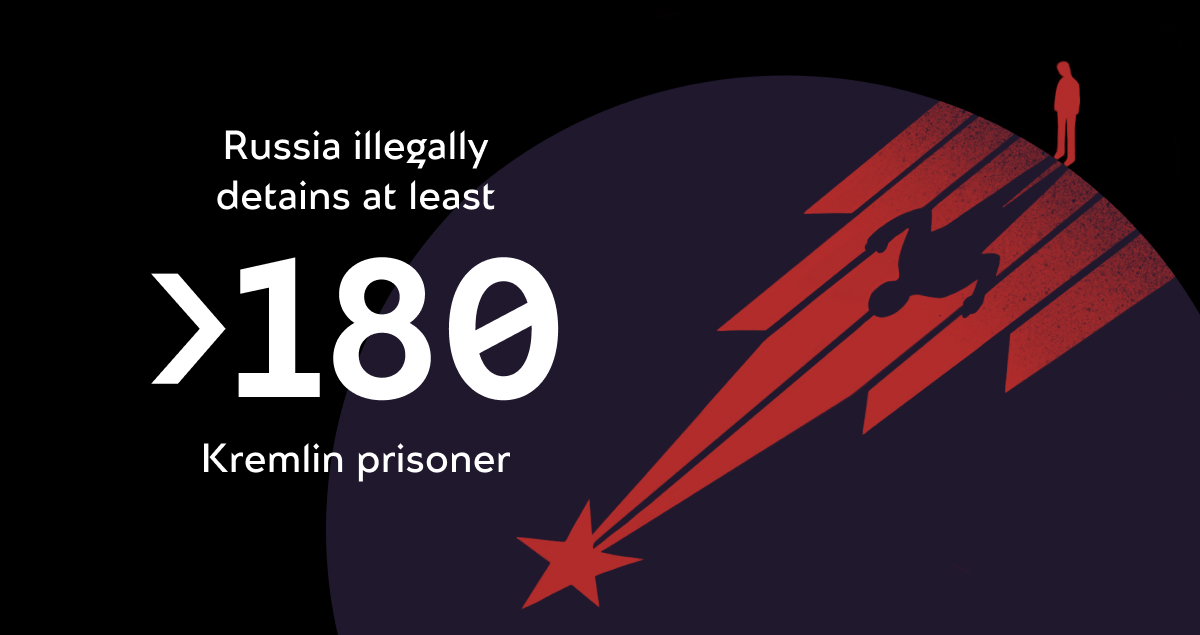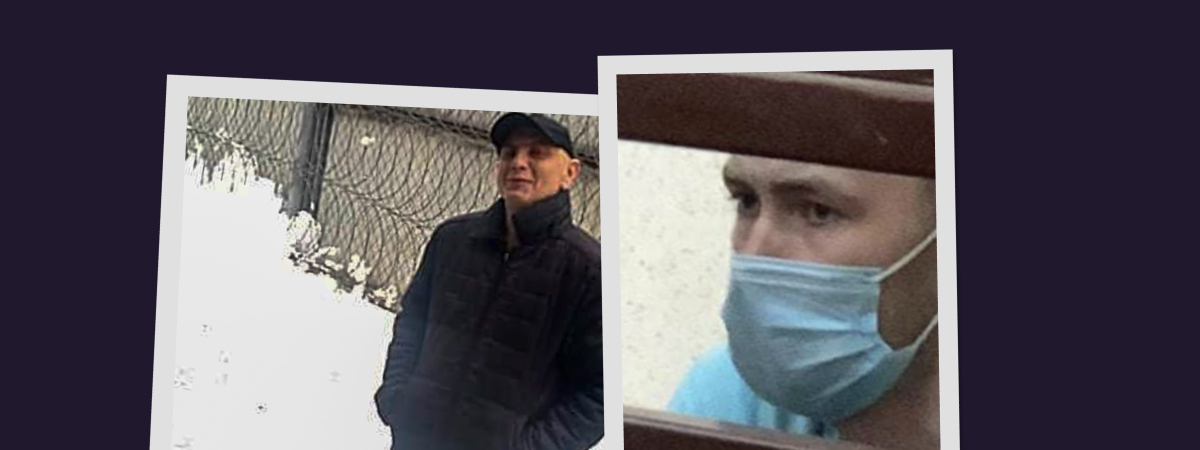Russia illegally detains at least 180 Kremlin prisoners

According to the Mission of the President of Ukraine in the AR of Crimea, this is the number of detained Ukrainian citizens illegally held by Russians in the temporarily occupied Crimea. Forty are arrested, another 125 are imprisoned, and eighteen have no procedural status. About 60% of the illegally detained are Crimean Tatars.
During the last two weeks, two prisoners died in illegal Russian detention.
In addition, Russians are illegally detaining Ukrainians in other temporarily occupied regions. However, there is less public information about their fates, as Russia denies that these illegal arrests took place.
On February 17, the occupation court sentenced the illegally detained Ukrainian citizen Oleksii Kyselov to 8.5 years in prison
On July 22, 2022, the Russians abducted the man in the temporarily occupied Henichesk and took him to Simferopol. Kyselov's defence will appeal the decision in the Court of Appeal — a correspondent of The Crimean Process initiative.

The Russians tortured Kiselyov and forced him to slander himself — they made him "confess" to being a member of the Crimean Tatar battalion named after Noman Çelebicihan and organising a "sea blockade" of the peninsula.
Oleksii Kyselov is a reserve captain, former Ukrainian Navy command ship Slavutych commander, and co-founder of the NGO Pereselenets SOS [Displaced Person - TN].
2. Kremlin prisoner Andrii Zakhtei was released from illegal detention, but the Russians sent him to a "temporary detention centre for foreigners"
Zakhtei spent 6.5 years behind bars on charges of helping "Ukrainian saboteurs." He is not the first Ukrainian to be sent to a "temporary detention centre for foreigners." — Graty media.

Zakhtei lived in the temporarily occupied Yevpatoriia [Crimean Tatar: Kezlev - TN]. In the summer of 2016, the Russians kidnapped him and accused him of allegedly planning to transport "Ukrainian saboteurs" across the peninsula.
Russian security forces tortured the illegally detained man and forced him to defame himself.
Zakhtei served 6.5 years in prison, but the Russians sent him as a citizen of Ukraine to a "temporary detention centre for foreigners" in the Rostov region.
They recently did the same to another Ukrainian military man, Yevhen Dobrynskyi. In January 2023, the Crimean Human Rights Group reported that Dobrynskyi, who the Russians had abducted, was released from the colony. However, he was also taken to a "temporary detention centre for foreigners".
3. The occupation court extended Andrii Bilozerov's illegal home detention
The Russians are persecuting Bilozerov for writing about war crimes committed by the Russian military in Ukraine on his VKontakte page.
Bilozerov told the Krym.Realii project about this "decision".
This is the third case against the man. At the end of December, the occupation court in Simferopol sentenced Bilozerov to two months of home detention for his post on VKontakte. The man wrote that the Russian military had been killing Ukrainian civilians for eight years of the Russian-Ukrainian war and was still doing so.
Previously, the temporarily occupied peninsula resident worked at a technical school, but he was fired for his pro-Ukrainian position.
4. The health of the Kremlin prisoner Ivan Yatskin has deteriorated.
He complains of poor eyesight and dental problems. However, the Russians do not provide him with medical care but instead, send him to a punishment cell with the worst detention conditions — Yatskin's wife, Gulnara Kadyrova, in an interview with Suspilne.

In 2019, Russians in the temporarily occupied Crimea illegally detained a Ukrainian citizen and took him to Moscow. In 2021, the occupation court delivered a "verdict" in the case of "high treason" against Yatskin — 11 years in prison.
The Russians do not provide him with medical care during his stay in the colony. For example, in 2021, his chronic illness, thrombophlebitis, was exacerbated. Yatskin asked for painkillers, but the colony administration refused.
Gulnara Kadyrova said that the Russians provoked Yatskin to commit violations. "Once, he was placed in a punishment cell and kept for a day without shoes (in winter), with an open window. In my opinion, this is a provocation with a further possibility of increasing the term," she said.


